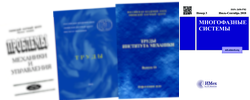

For all liquids, a change in viscosity depending on temperature is characteristic. In most cases, this dependency is commonly overlooked; however, when studying the flow of liquids under conditions of intense heat exchange, the temperature-dependent viscosity can have a significant impact on mass and heat transfer processes. It should be noted that for some liquids, such as polymer solutions or biological fluids, the temperature dependence of viscosity can be extremely complex and nonlinear. In such cases, ignoring this dependence can lead to inaccurate results and errors. Annular channels find wide applications in various technical systems, including heat exchangers and hydraulic devices. Understanding the factors influencing the fluid flow and discharge in such channels is a key aspect of optimizing their design and operation. One of the main factors influencing the flow process and fluid discharge in annular channels is the temperature-dependent viscosity of the fluid. This work investigates the influence of the thermo-viscous parameter with monotonic and non-monotonic temperature-dependent viscosity, as well as the geometric parameter of the annular channel on the fluid flow process and discharge. The mathematical model includes the continuity equation, Navier-Stokes equations, and the temperature equation. The method of control volume and the SIMPLE algorithm, modified to account for the variable viscosity coefficient, were applied for the numerical solution of these equations. It is shown that in the case of liquid flow in an annular channel with a monotonic dependence of viscosity on temperature, the steady-state discharge closely approaches the discharge at maximum viscosity. However, in the case of a liquid with non-monotonic viscosity dependence on temperature, the discharge significantly depends on the thermo-viscous parameter.
аnnular channel,
thermoviscous fluid,
fluid flow
Introduction
Fluid viscosity is a key parameter that affects the efficiency of technological processes such as oil pumping, polymer production and metallurgical operations. Therefore, studying the temperature dependence of viscosity during liquid flow in annular channels is an urgent task for scientific and engineering fields. Typically, with increasing temperature, the viscosity of liquids decreases and is described by an exponentially decreasing function. However, some substances have an anomalous temperature dependence of viscosity associated with the processes of polymerization and depolymerization, as in the case of liquid sulfur, polymer solutions, metal melts and especially viscous oil.
Goal of the work
Establishment of parameters that determine the features of the flow of a thermoviscous incompressible fluid in an annular channel using numerical simulation.
Methods and approaches
The mathematical model, which includes the continuity equation, the Navier-Stokes equations and the temperature equation, presented in cylindrical coordinates taking into account axial symmetry, was solved numerically using the control volume method and the SIMPLE algorithm, modified to take into account the variable viscosity coefficient. The original computer code is implemented in the C + + programming language in the cross-platform development environment Qt Creator.
Results
In this work, the flow of a thermoviscous liquid in an annular channel was studied, and it was shown that its hydrodynamic flow features are associated with the type of dependence of viscosity on temperature and are determined by the size and shape of the highly viscous region formed in the channel. At a fixed pressure drop, the liquid flow rate increases nonlinearly with increasing relative width of the annular channel.
Moreover, it was found that when a liquid flows with a monotonic dependence of viscosity on temperature, the steady-state flow rate is close to the flow rate with maximum viscosity, while the flow rate of a liquid with a non-monotonic dependence of viscosity on temperature significantly depends on the thermoviscosity parameter. These results highlight the importance of considering both geometric and rheological parameters when analyzing fluid flow in annular channels.






